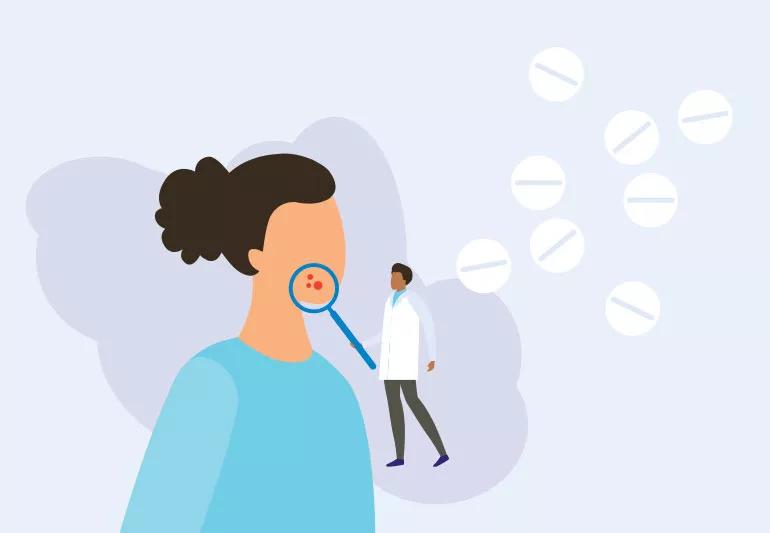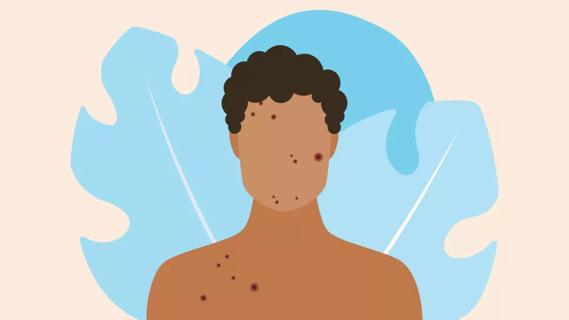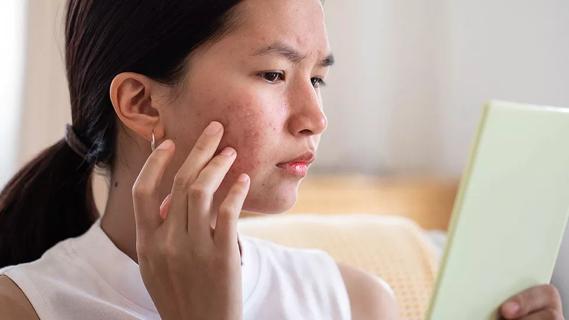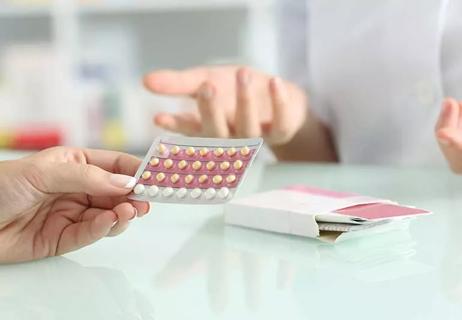This medication helps reduce androgen hormones, which produce oil-clogging sebum

If you have acne, you already know there are about a zillion products out there that claim to fix it.
Advertisement
Cleveland Clinic is a non-profit academic medical center. Advertising on our site helps support our mission. We do not endorse non-Cleveland Clinic products or services. Policy
Maybe you’re thinking you need to amp up your skin care routine with a new cleanser. Or micellar water. Or slugging. (Please skip that last one. Petroleum jelly is not recommended for acne-prone skin.)
And while it’s true that taking care of your skin regularly and with the right products can help, sometimes, it’s not enough. Especially if your hormones are at the heart of the problem.
Hormonal acne is a very common form of acne. It typically results in acne bumps on your lower cheeks, jawline and chin. This type of acne most commonly affects women in their teens and adulthood.
Oral medications can be used to treat hormonal acne. You may have heard that certain forms of oral birth control pills can help treat acne. Another oral medication you may have heard about involves spironolactone (which also goes by the brand name Aldactone®).
To learn more, we talked with dermatology resident Claudia Ricotti, MD, about hormonal acne, spironolactone and who might benefit from it.
Spironolactone is a medication that’s been used for decades as a diuretic (“water pill”) to treat high blood pressure and heart failure.
So why is it being used for acne?
“Spironolactone lowers blood pressure by acting on specific hormones in the body. These hormones just so happen to play a role in hormonal acne,” Dr. Ricotti explains. “Dermatologists have used spironolactone for many years as a well-studied and effective treatment option for hormonal acne.”
Advertisement
Here’s how it works.
Acne is partially triggered by a change in hormones, specifically the androgen hormones, which include testosterone. Androgen hormones are sometimes referred to as “male hormones,” but we all have them in our bodies in different amounts as they play an important role in puberty and reproductive health.
When we have high amounts of androgens in our body, it can lead to an overproduction of sebum, an oily substance in our skin glands. Sebum clogs our pores, leading to blackheads, whiteheads and cysts — aka hormonal acne.
Enter: spironolactone.
Spironolactone helps reduce those androgen hormones, which, in turn, reduces excess sebum and acne. (Ta-da!) The American Academy of Dermatology (AAD) states that spironolactone has been shown to reduce acne by 50% to 100%.
Spironolactone is usually prescribed as an oral medication (pill form) in doses ranging from 25 milligrams (mg) to 200 mg per day. Your healthcare provider will typically start at a lower dose and gradually increase the dose over time, as tolerated.
Research shows that a low dose of 50 mg per day may be sufficient to treat hormonal acne. It isn’t recommended to increase your spironolactone dose without first talking to your provider.
The AAD says most people will see a decrease in breakouts and oiliness within a few weeks of beginning treatment with oral spironolactone. But the majority of acne treatments take at least three months of consistent use to see improvement.
Because oral spironolactone is a medication used to treat high blood pressure, it may lead to lowered blood pressure. Contact your healthcare provider immediately if you have symptoms of low blood pressure — such as dizziness or lightheadedness — while taking oral spironolactone. They’ll check your blood pressure before starting the medication and at your follow-up visits.
Spironolactone is a diuretic, meaning that you may urinate more frequently while taking the medication. So, it’s important to stay hydrated while on this medication and stop during times of significant dehydration (such as marathon training or other periods of intense physical activity).
The medication also comes with a warning label about a possible link to breast cancer. But the AAD notes that the warning is based on animal studies and with very high doses of spironolactone. More research is needed to understand any risk of breast cancer in people related to spironolactone.
Other side effects include:
Advertisement
If you are pregnant, planning a pregnancy or breastfeeding, you shouldn’t take spironolactone due to the risk of serious birth defects. If you may become pregnant, it's strongly advised to use contraception while taking spironolactone.
Because some oral birth control pills also treat acne, your provider may recommend using both spironolactone and an oral birth control pill together as a highly effective acne treatment while also preventing pregnancy.
Because of its effects on lowering testosterone and other androgen hormones, oral spironolactone usually isn’t recommended for men or in anyone where lowered androgen hormone levels aren’t desired.
If you have a strong family history of breast cancer, your provider may advise against spironolactone.
Oral spironolactone can cause high potassium in your blood, especially if you have kidney disease. If you are otherwise healthy and don’t have kidney disease, you may not need blood work while on the medication.
If you have kidney disease, your healthcare provider may monitor your kidney levels and potassium levels at your follow-up visits.
Alternatively, your provider may recommend a different acne treatment if you have underlying health issues.
Advertisement
Spironolactone isn’t a “cure” for acne, but many people experience improvement in acne while taking this medication. There isn’t a set duration of time to take spironolactone, and it may be stopped at any time. But if you’re planning to stop taking spironolactone, first talk with your provider about how to stop this medication safely.
Dr. Ricotti points out that spironolactone is just one of many medications dermatologists and dermatology providers use on daily basis to treat acne.
“Depending on the person, the severity of the acne and the goals of acne treatment, we may start with topical treatments first — such as anti-acne washes and anti-acne creams,” Dr. Ricotti says. “Medications like spironolactone can be added to an existing acne regimen for certain people who would like to see further improvement in their acne.”
Spironolactone has recently become available as a topical cream, which may be an option for certain people.
“If you prefer not to take oral medications or it is not recommended to take oral spironolactone due to side effects or medication interactions, your provider may recommend the topical cream,” Dr. Ricotti says. Both the pill and the cream require a prescription. Because the cream version is relatively newer, it may be more costly and only be available at select pharmacies.
Advertisement
If your current acne regimen isn’t doing the trick — or you’re not sure where to start or what products to try — Dr. Ricotti suggests reaching out to a healthcare professional, such as a dermatologist or a primary care provider.
“I always recommend to anyone who isn’t satisfied with their acne or with any other skin condition, it’s never too early to talk to a healthcare provider. Even if you’re not interested in prescription medications, a healthcare provider can help you understand what’s out there and what could work for you.”
Learn more about our editorial process.
Advertisement

It’s best to avoid picking at zits, which can damage your skin (though there are ways to minimize the risk)

This medication only works well for short periods of time and when paired with other treatments

‘Zit stickers’ can help heal a new or popped pimple, but they’re limited when it comes to managing acne

Try exfoliating and using salicylic acid to treat this pesky skin care issue

Wear light, breathable clothing, shower after you exercise and change your sheets regularly

As you age, hormones can continue to play a big role in breakouts

Some remedies might help banish breakouts, but others are best avoided

Birth control pills with estrogen are best for fighting hormonal acne

Wearing a scarf, adjusting your outdoor activities and following your asthma treatment plan can help limit breathing problems

Your diet in the weeks, days and hours ahead of your race can power you to the finish line

When someone guilt trips you, they’re using emotionally manipulative behavior to try to get you to act a certain way